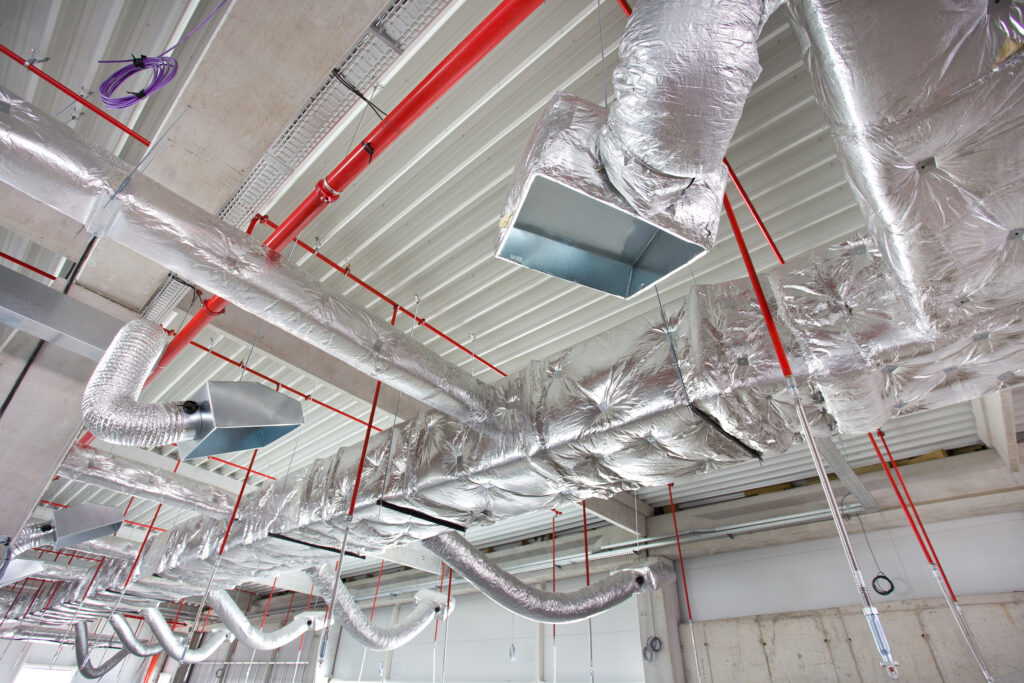
HVAC Cost By Installation Type
The type of unit you choose significantly impacts the cost to replace your HVAC system.

HVAC Cost By Installation Type
The type of unit you choose significantly impacts the cost to replace your HVAC system.
Air Conditioners
- Portable AC unit: Portable air conditioners are compact units that can be moved from room to room. They typically sit on the floor and come with an exhaust hose to vent hot air outside through a window or sliding door. These units are suitable for cooling smaller spaces or as temporary cooling solutions. The average cost of a portable AC unit ranges from $100 to $500.
- Window AC unit: Window air conditioners are installed in windows or through-the-wall openings. They are designed to cool single rooms and are relatively easy to install. Window AC units come in various sizes to accommodate different room sizes. The average cost of a window AC unit ranges from $200 to $1,300.
- Ductless mini split: Ductless mini split systems consist of an outdoor compressor unit and one or more indoor air-handling units. They don’t require ductwork, making them ideal for homes without existing duct systems or room additions. Each indoor unit can be controlled independently for customized comfort. The average cost of a ductless mini split system ranges from $2,000 to $14,000 per indoor unit.
- Central AC unit: Central air conditioning systems use ducts to distribute cooled air throughout the entire home. They consist of an outdoor compressor unit and an indoor evaporator coil connected to the furnace. Central AC systems provide whole-house cooling and can maintain consistent temperatures throughout the home. The average cost of a central AC unit installation ranges from $3,700 to $7,400.
Furnaces
- Electric furnace: Electric furnaces use electricity to generate heat and distribute it throughout the home via ductwork. They are easy to install and typically have lower upfront costs compared to other types of furnaces. However, they may have higher operating costs, especially in areas with expensive electricity rates. The average cost of an electric furnace installation ranges from $2,000 to $6,300.
- Natural gas furnace: Natural gas furnaces burn natural gas to produce heat. They are one of the most common types of furnaces in homes with access to natural gas lines. Natural gas furnaces are efficient and provide reliable heating. The average cost of a natural gas furnace installation ranges from $3,500 to $9,000.
- Oil furnace: Oil furnaces use heating oil to generate heat. They are commonly found in regions where natural gas is not readily available. Oil furnaces require a storage tank for the heating oil and regular fuel deliveries. The average cost of an oil furnace installation ranges from $6,000 to $10,000.
Heat Pumps
- Air source: Air source heat pumps transfer heat between the indoor and outdoor air to provide heating and cooling. They are efficient alternatives to traditional heating and cooling systems, especially in moderate climates. The average cost of an air source heat pump installation ranges from $5,000 to $14,000.
- Geothermal: Geothermal heat pumps use the constant temperature of the earth to provide heating and cooling. Geothermal heat pumps have higher installation costs but lower operating costs over time due to their high efficiency. The average cost of a geothermal heat pump installation ranges from $10,000 to $35,000.
- Mini split: Mini split heat pumps provide heating and cooling without ductwork. They consist of an outdoor compressor unit and one or more indoor air-handling units. Mini split heat pumps offer zoned heating and cooling, allowing for personalized comfort in different areas of the home. The average cost of a mini split heat pump installation ranges from $2,000 to $14,500 per indoor unit.
- Hybrid: Hybrid heat pumps combine a traditional furnace with a heat pump to provide efficient heating and cooling. They automatically switch between the two sources depending on outdoor temperatures and energy costs, optimizing energy efficiency. Hybrid heat pumps are suitable for regions with fluctuating temperatures and varying energy prices. The average cost of a hybrid heat pump installation ranges from $3,000 to $15,000.
- Solar: Solar heat pumps use solar energy to power the heat pump system, reducing reliance on grid electricity. They are environmentally friendly and can significantly reduce energy costs over time. Solar heat pumps may require additional equipment such as solar panels and battery storage systems, increasing upfront costs. The average cost of a solar heat pump installation varies widely depending on system size and components but can range from $18,000 to $39,000.
HVAC Cost Factors
Multiple factors influence HVAC replacement costs. Understanding these factors is crucial for accurately estimating your project’s total expenses.
Unit Size: The size of your HVAC unit is determined by the square footage of your house. Larger homes require more powerful units, which can increase HVAC unit replacement costs. On average, you can expect to pay between $3 and $7 per square foot for your HVAC system.
SEER Rating: The Seasonal Energy Efficiency Ratio (SEER) measures the efficiency of air conditioning units. Higher SEER ratings indicate greater efficiency but may come with a higher upfront cost.
Brand: Well-known brands often come with higher price tags. However, reputable brands typically offer better performance and reliability, potentially reducing long-term repair costs.
Ductwork: If your home lacks existing ductwork, installation can significantly increase overall costs. Conversely, converting from baseboard heating to a central HVAC system may involve additional expenses but can improve energy efficiency.
Local Climate: Climate considerations, such as temperature extremes and humidity levels, can impact HVAC unit selection and sizing. In regions with harsh winters or hot summers, higher-capacity units may be necessary, driving up costs.
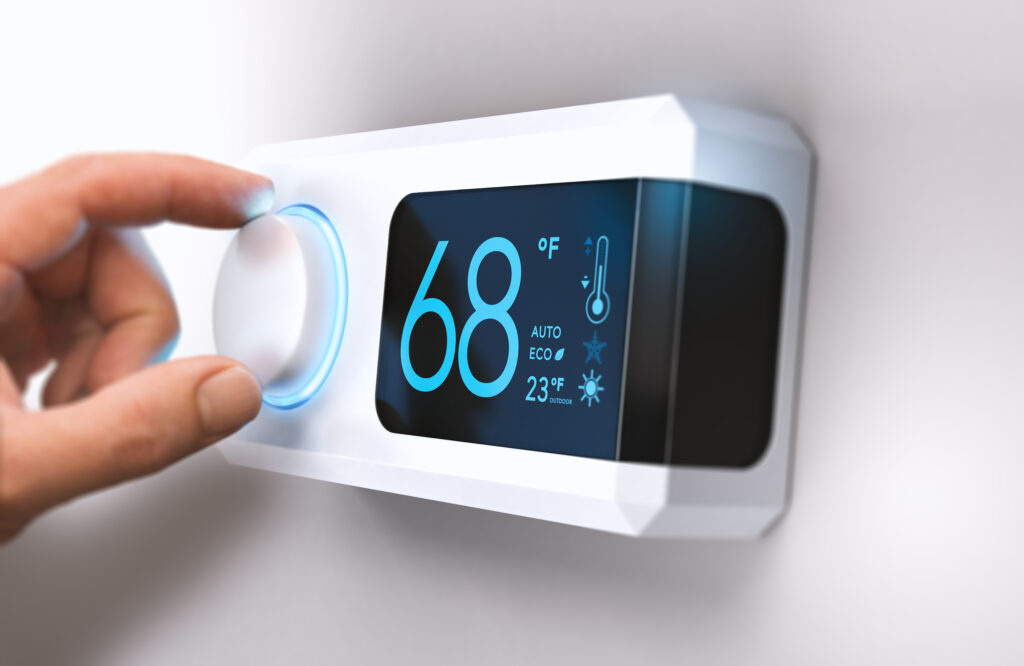
HVAC Accessories Costs
Enhancing your HVAC system with additional accessories can improve its efficiency and performance. Here are some common accessories and their average installation costs:
- Smart thermostats: These innovative devices offer precise temperature control and energy-saving features. Generally, a smart thermostat can cost $260 or more.
- Humidifiers: Adding a humidifier can help maintain optimal indoor humidity levels, especially during the dry winter months. Expect to pay between $400 and $750 for installation.
- Dehumidifiers: Conversely, if your home suffers from excess humidity, a dehumidifier can alleviate moisture issues. Installation costs typically range from $1,300 to $2,800.
- Air purifiers: For improved indoor air quality, consider installing an air purifier, which can remove airborne pollutants and allergens. Installation costs vary but generally fall between $600 and $1,000.
- UV lamps: UV lamps can kill bacteria and mold within the HVAC system, reducing the risk of respiratory issues. Installation costs range from $200 to $600 on average.
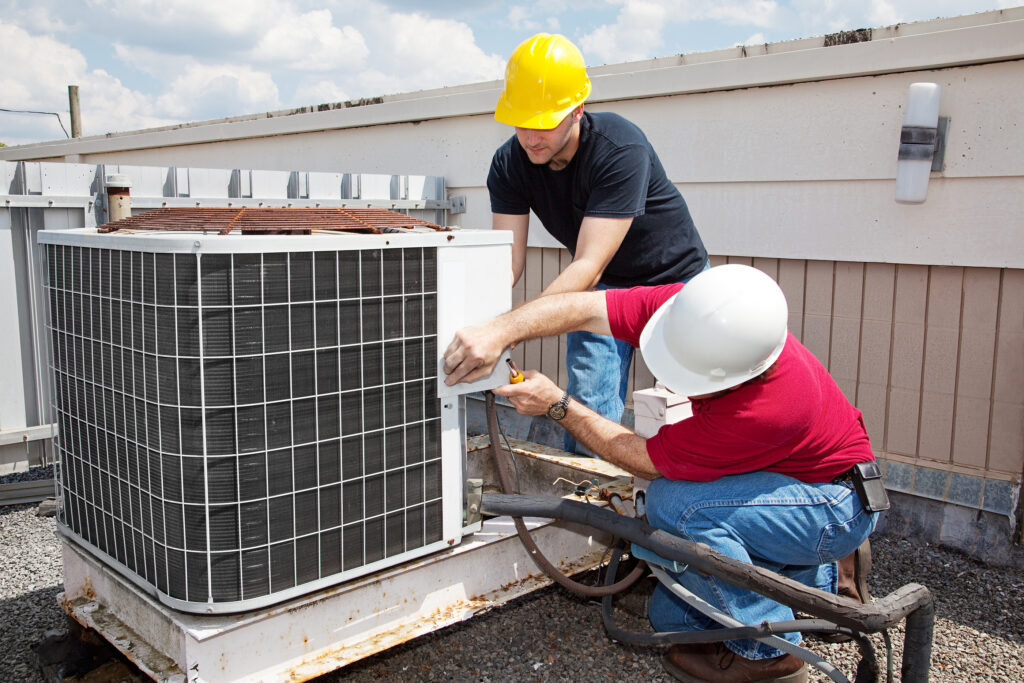
Average HVAC Repair Costs
While HVAC replacement may seem inevitable, repairing a malfunctioning unit can be a cost-effective solution, provided the necessary parts are available. Here are some common types of repairs and their average costs:
- Thermostat replacement: $100 to $300
- Capacitor replacement: $150 to $350
- Refrigerant leak repair: $200 to $1,500
- Compressor replacement: $1,500 to $2,500
- Fan motor replacement: $200 to $600
- Evaporator coil replacement: $600 to $1,200
- Condenser coil replacement: $800 to $1,500
- Ductwork repair: $350 to $1,000
HVAC Repair Factors to Consider
When deciding between repair and replacement, several factors come into play.
Type of HVAC Unit: Different types of HVAC units have varying repair and replacement costs. While some units may be more expensive to repair, others may have a higher replacement cost. Here’s a breakdown of average costs:
- AC repair: $100 to $1,500
- Furnace repair: $100 to $1,200
- Heat pump repair: $150 to $900
- Mini split repair: $100 to $1,200
Age of Unit: The age of your HVAC unit plays a significant role in determining whether to repair or replace it. Older units may require frequent repairs, leading to increased costs over time.
Labor: Skilled technicians ensure the work is done safely and effectively. Labor costs can vary depending on the complexity of the repair.Location: The cost of living and local market conditions can influence labor and parts costs, so it’s essential to consider your location when budgeting for HVAC repairs or replacements.
Permits: When replacing an HVAC system, you may need to obtain permits from your city or municipality, which can add to the overall cost of the project.
Warranties: Consider investing in extended warranties for your HVAC system to provide additional coverage for parts and labor beyond the manufacturer’s standard warranty.
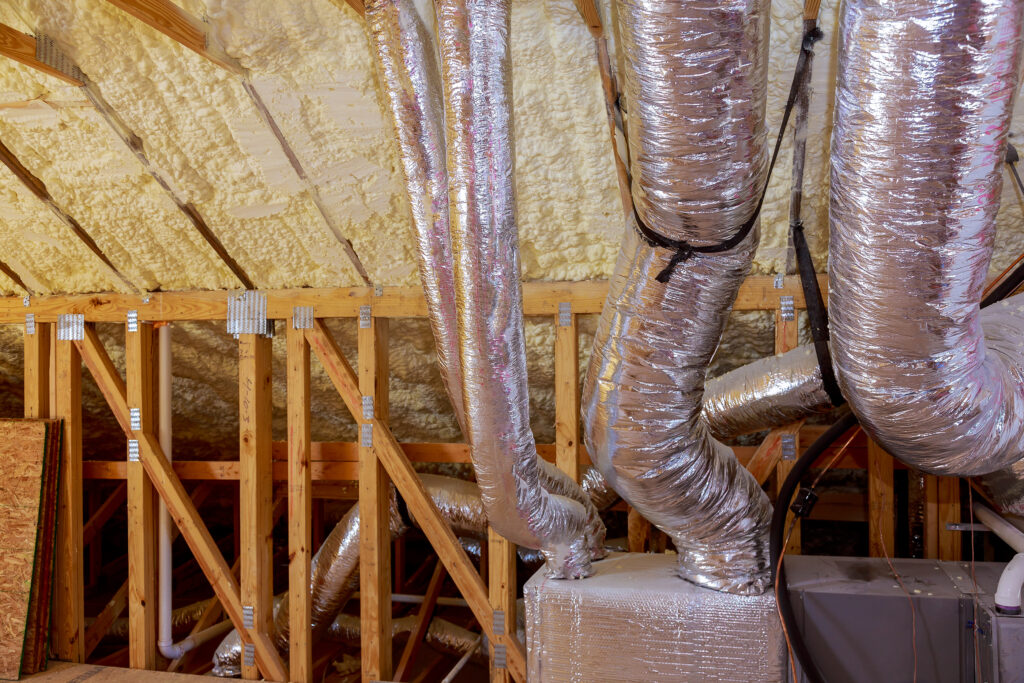
How Long Should My HVAC System Last?
The average lifespan of an HVAC system can vary depending on several factors, including the type of unit and how well it is maintained. Typically, HVAC systems are expected to last between 15 to 25 years. However, this lifespan can be influenced by the type of unit you have installed.
- Average Lifespan of an Air Conditioning Unit: An air conditioning unit typically lasts between 15 to 20 years.
- Average Lifespan of a Furnace: A furnace can last anywhere from 15 to 30 years, depending on the type and quality of the unit.
- Average Lifespan of a Heat Pump: Heat pumps generally have a lifespan of around 15 years.
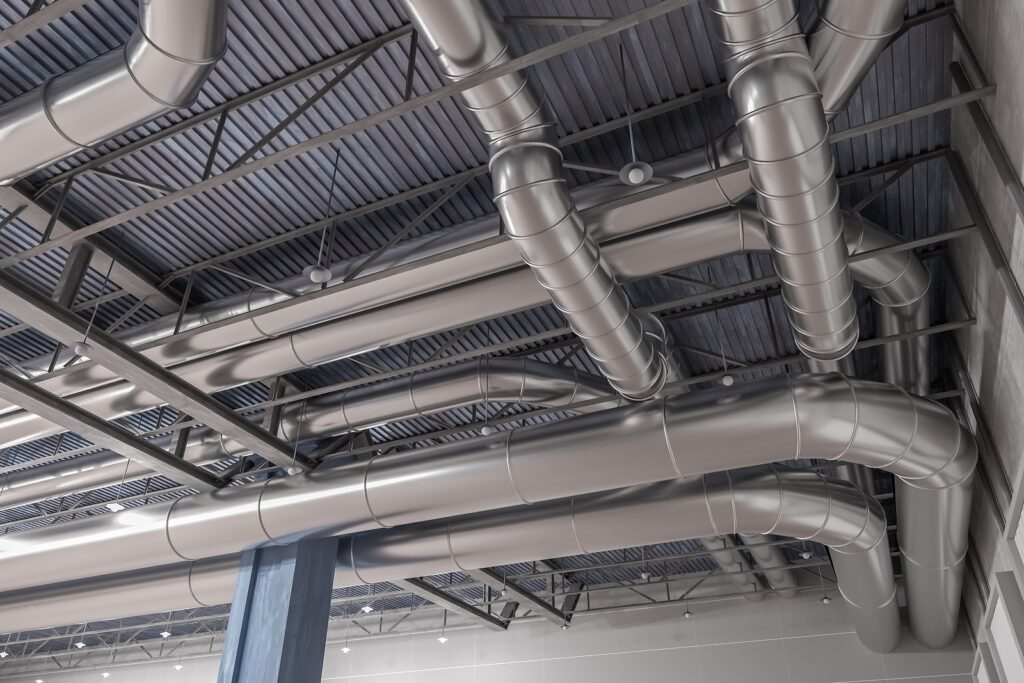
How to Save Money on a New HVAC System?
When considering HVAC replacement cost there are several ways to save money. Many manufacturers offer rebates or incentives for purchasing energy-efficient models. Additionally, local gas and electric companies may offer rebates or discounts for upgrading to more efficient systems. Taking advantage of these offers can significantly reduce the upfront cost of a new HVAC system.
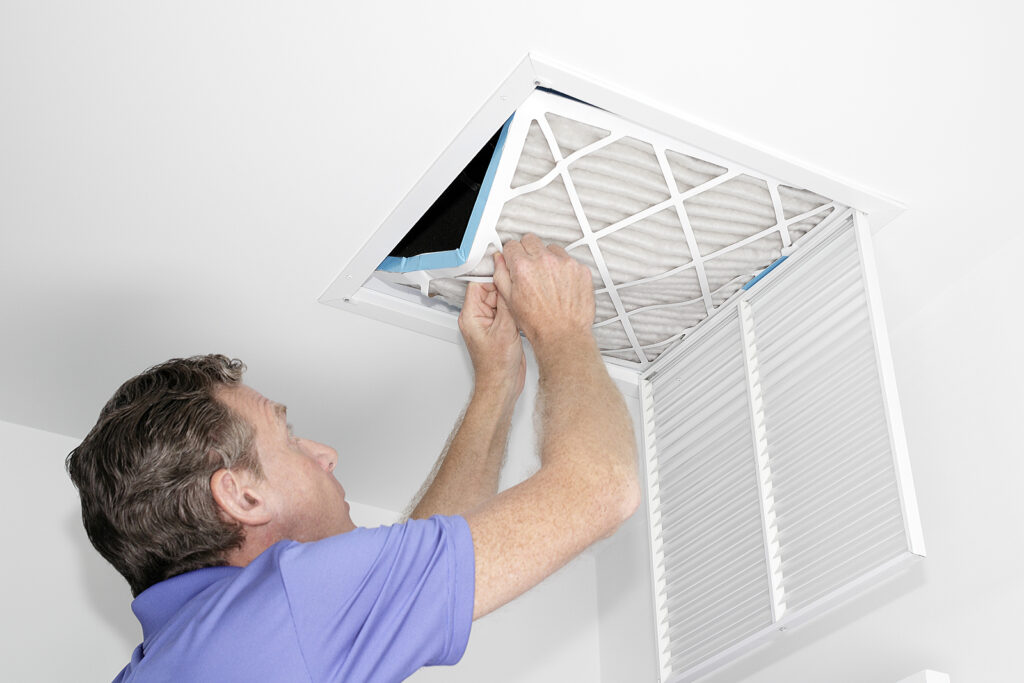
How to Extend the Life of Your HVAC System?
Taking proactive steps to maintain your HVAC system can help extend its lifespan and reduce the need for costly repairs. You can maximize your HVAC system’s longevity by:
- Regularly changing your filter: Dirty filters can restrict airflow and strain your HVAC system, so it’s essential to replace them every one to three months.
- Scheduling annual maintenance: Hire a professional HVAC technician to inspect and tune up your system annually to ensure optimal performance.
- Keeping outdoor units clean: Remove debris such as leaves, grass clippings, and branches from around your outdoor HVAC unit to prevent airflow obstruction.
- Sealing leaks and insulating ducts: Properly sealed ductwork and adequate insulation can improve energy efficiency and reduce strain on your HVAC system.
- Monitoring thermostat settings: Adjusting your thermostat settings when you’re away from home can reduce unnecessary energy consumption and extend the life of your HVAC system.
HVAC Replacement and Repair Costs FAQ
How Much Does a New AC Unit Cost?
The cost of a new AC unit varies depending on factors such as size, efficiency rating, and brand. The average cost of a new AC unit is $5,900.
How Often Should Your AC Unit Be Replaced?
On average, AC units last between 10 and 15 years, but factors such as usage and maintenance can affect lifespan.
How Do I Know When My AC Unit Needs to Be Replaced?
Signs that your AC unit may need a replacement include frequent breakdowns, rising energy bills, and uneven cooling throughout your home.
How Much Does a New Furnace Cost?
The cost of a new furnace depends on factors such as size, efficiency rating, and brand, but prices typically range from $2,800 to $6,800 or more.
How Often Should Your Furnace Be Replaced?
Furnaces typically last between 15 and 20 years, but regular maintenance can extend their lifespan.
How Do I Know When My Furnace Needs to Be Replaced?
Signs that your furnace may need a replacement include strange noises, uneven heating, and increasing energy bills.
What is the Most Expensive Part of an HVAC System?
The compressor is often the most expensive component of an HVAC system to repair or replace due to its critical role in the cooling process.
Find a local HVAC company for your project
Get an accurate HVAC replacement or repair estimate from an expert in your area
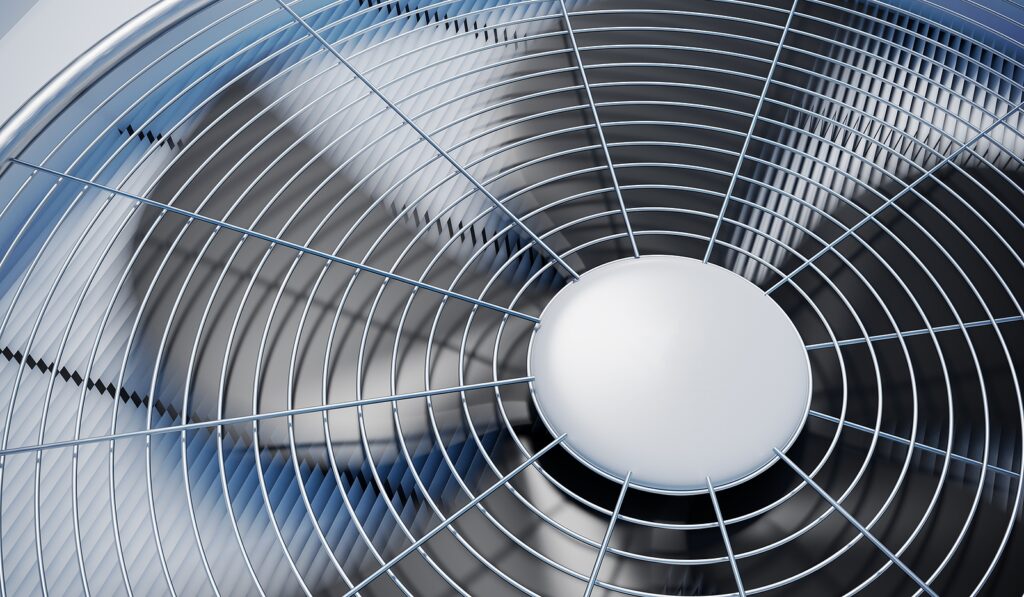
No-Hassle HVAC Replacement & Repair Estimates
- Free Quotes on All Services
- Top-Rated Remodeling Pros
- Licensed & Certified Installers
- Industry-Leading Warranties
- 100% Satisfaction Guaranteed
- Local Contractors in Your Area